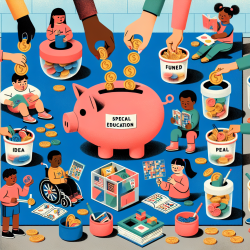Introduction
Income inequality is a growing concern worldwide, and its impact on mental health, particularly among adolescents, is gaining attention. A recent study titled Income inequality and depression among Canadian secondary students: Are psychosocial well-being and social cohesion mediating factors? provides valuable insights into how income disparity affects the mental health of young people in Canada. This blog will explore the findings of this study and discuss how practitioners can apply these insights to improve adolescent mental health outcomes.
Key Findings
The study reveals a significant association between income inequality and depression among Canadian secondary students. It highlights that psychosocial well-being acts as a mediator in this relationship, whereas social cohesion does not significantly mediate the effect. This means that students in areas with high income inequality are more likely to experience depression, particularly if they have low psychosocial well-being.
Implications for Practitioners
Practitioners working with adolescents can leverage these findings to enhance their interventions. Here are some actionable steps:
- Focus on Psychosocial Well-being: Given that psychosocial well-being mediates the relationship between income inequality and depression, practitioners should prioritize programs that enhance self-esteem, life satisfaction, and overall mental health.
- School-based Interventions: Schools are a critical environment for adolescents. Implementing programs that foster a supportive and inclusive school culture can mitigate the negative impacts of income inequality.
- Community Engagement: Encourage community initiatives that promote social cohesion and support networks, even if social cohesion was not found to be a significant mediator in this study.
Encouraging Further Research
While this study provides crucial insights, there is a need for further research to explore additional mediating factors and the long-term effects of income inequality on adolescent mental health. Practitioners are encouraged to engage in or support research efforts that investigate these areas, potentially contributing to more comprehensive intervention strategies.
Conclusion
Understanding the link between income inequality and adolescent depression is essential for developing effective mental health interventions. By focusing on enhancing psychosocial well-being and creating supportive school environments, practitioners can play a pivotal role in mitigating the adverse effects of income inequality on young people's mental health. For those interested in delving deeper into this research, the original study provides a wealth of information and can be accessed here.










